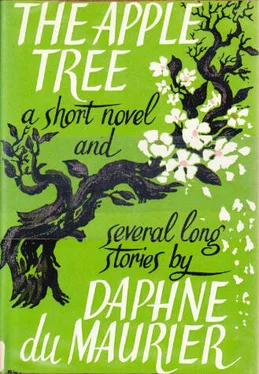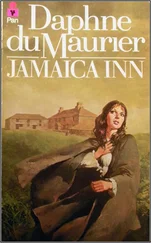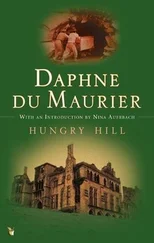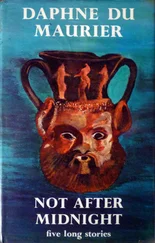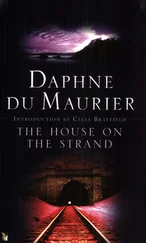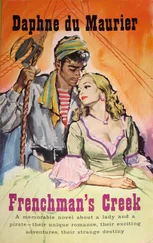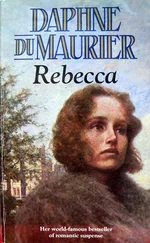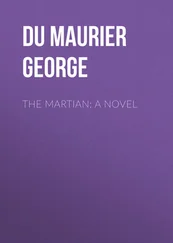Daphne du Maurier - The Apple Tree - a short novel & several long stories
Здесь есть возможность читать онлайн «Daphne du Maurier - The Apple Tree - a short novel & several long stories» весь текст электронной книги совершенно бесплатно (целиком полную версию без сокращений). В некоторых случаях можно слушать аудио, скачать через торрент в формате fb2 и присутствует краткое содержание. Жанр: Современная проза, Триллер, Социально-психологическая фантастика, на английском языке. Описание произведения, (предисловие) а так же отзывы посетителей доступны на портале библиотеки ЛибКат.
- Название:The Apple Tree: a short novel & several long stories
- Автор:
- Жанр:
- Год:неизвестен
- ISBN:нет данных
- Рейтинг книги:5 / 5. Голосов: 1
-
Избранное:Добавить в избранное
- Отзывы:
-
Ваша оценка:
- 100
- 1
- 2
- 3
- 4
- 5
The Apple Tree: a short novel & several long stories: краткое содержание, описание и аннотация
Предлагаем к чтению аннотацию, описание, краткое содержание или предисловие (зависит от того, что написал сам автор книги «The Apple Tree: a short novel & several long stories»). Если вы не нашли необходимую информацию о книге — напишите в комментариях, мы постараемся отыскать её.
The Apple Tree: a short novel & several long stories — читать онлайн бесплатно полную книгу (весь текст) целиком
Ниже представлен текст книги, разбитый по страницам. Система сохранения места последней прочитанной страницы, позволяет с удобством читать онлайн бесплатно книгу «The Apple Tree: a short novel & several long stories», без необходимости каждый раз заново искать на чём Вы остановились. Поставьте закладку, и сможете в любой момент перейти на страницу, на которой закончили чтение.
Интервал:
Закладка:
He turned away from the window and went on shaving. It would not do to let his imagination run away with him and start building fancies in his mind just when he was settling at long last to freedom. He bathed and dressed and went down to breakfast. Eggs and bacon were waiting for him on the hot-plate, and he carried the dish to the single place laid for him at the dining-table. 'The Times', folded smooth and new, was ready for him to read. When Midge was alive he had handed it to her first, from long custom, and when she gave it back to him after breakfast, to take with him to the study, the pages were always in the wrong order and folded crookedly, so that part of the pleasure of reading it was spoilt. The news, too, would be stale to him after she had read the worst of it aloud, which was a morning habit she used to take upon herself; always adding some derogatory remark of her own about what she read. The birth of a daughter to mutual friends would bring a click of the tongue, a little jerk of the head, "Poor things, another girl," or if a son, "A boy can't be much fun to educate these days." He used to think it psychological, because they themselves were childless, that she should so grudge the entry of new life into the world; but as time passed it became thus with all bright or joyous things, as though there was some fundamental blight upon good cheer.
"It says here that more people went on holiday this year than ever before. Let's hope they enjoyed themselves, that's all." But no hope lay in her words, only disparagement. Then, having finished breakfast, she would push back her chair and sigh and say, "Oh well…", leaving the sentence unfinished; but the sigh, the shrug of the shoulders, the slope of her long, thin back as she stooped to clear the dishes from the serving-table — thus sparing work for the daily maid-was all part of her long-term reproach, directed at him, that had marred their existence over a span of years.
Silent, punctilious, he would open the door for her to pass through to the kitchen quarters, and she would labour past him, stooping under the weight of the laden tray that there was no need for her to carry, and presently, through the half-open door, he would hear the swish of the running water from the pantry tap. He would return to his chair and sit down again, the crumpled 'Times', a smear of marmalade upon it, lying against the toast-rack; and once again, with monotonous insistence, the question hammered at his mind, "What have I done?"
It was not as though she nagged. Nagging wives, like mothers-in-law, were chestnut jokes for music-halls. He could not remember Midge ever losing her temper or quarrelling. It was just that the undercurrent of reproach, mingled with suffering nobly born, spoilt the atmosphere of his home and drove him to a sense of furtiveness and guilt.
Perhaps it would be raining and he, seeking sanctuary within his study, electric fire aglow, his after-breakfast pipe filling the small room with smoke, would settle down before his desk in a pretence of writing letters, but in reality to hide, to feel the snug security of four safe walls that were his alone. Then the door would open and Midge, struggling into a raincoat, her wide-brimmed felt hat pulled low over her brow, would pause and wrinkle her nose in distaste.
"Phew! What a fug."
He said nothing, but moved slightly in his chair, covering with his arm the novel he had chosen from a shelf in idleness.
"Aren't you going into the town?" she asked him.
"I had not thought of doing so."
"Oh! Oh, well, it doesn't matter." She turned away again towards the door.
"Why, is there anything you want done?"
"It's only the fish for lunch. They don't deliver on Wednesdays. Still, I can go myself if you are busy. I only thought…"
She was out of the room without finishing her sentence. "It's all right, Midge," he called, "I'll get the car and go and fetch it presently. No sense in getting wet."
Thinking she had not heard he went out into the hall. She was standing by the open front door, the mizzling rain driving in upon her. She had a long flat basket over her arm and was drawing on a pair of gardening gloves.
"I'm bound to get wet in any case," she said, "so it doesn't make much odds. Look at those flowers, they all need staking. I'll go for the fish when I've finished seeing to them."
Argument was useless. She had made up her mind. He shut the front door after her and sat down again in the study. Somehow the room no longer felt so snug, and a little later, raising his head to the window, he saw her hurry past, her raincoat not buttoned properly and flapping, little drips of water forming on the brim of her hat and the garden basket filled with limp michaelmas daisies already dead. His conscience pricking him, he bent down and turned out one bar of the electric fire.
Or yet again it would be spring, it would be summer. Strolling out hatless into the garden, his hands in his pockets, with no other purpose in his mind but to feel the sun upon his back and stare out upon the woods and fields and the slow winding river, he would hear, from the bedrooms above, the high-pitched whine of the Hoover slow down suddenly, gasp and die. Midge called down to him as he stood there on the terrace.
"Were you going to do anything?" she said.
He was not. It was the smell of spring, of early summer, that had driven him out into the garden. It was the delicious knowledge that being retired now, no longer working in the City, time was a thing of no account, he could waste it as he pleased.
"No," he said, "not on such a lovely day. Why?"
"Oh, never mind," she answered, "it's only that the wretched drain under the kitchen window has gone wrong again. Completely plugged up and choked. No one ever sees to it, that's why. I'll have a go at it myself this afternoon."
Her face vanished from the window. Once more there was a gasp, a rising groan of sound, and the Hoover warmed to its task again. What foolishness that such an interruption could damp the brightness of the day. Not the demand, nor the task itself — clearing a drain was in its own way a schoolboy piece of folly, playing with mud — but that wan face of hers looking out upon the sunlit terrace, the hand that went up wearily to push back a strand of falling hair, and the inevitable sigh before she turned from the window, the unspoken, "I wish I had the time to stand and do nothing in the sun. Oh, well…"
He had ventured to ask once why so much cleaning of the house was necessary. Why there must be the incessant turning out of rooms. Why chairs must be lifted to stand upon other chairs, rugs rolled up and ornaments huddled together on a sheet of newspaper. And why, in particular, the sides of the upstairs corridor, on which no one ever trod, must be polished laboriously by hand, Midge and the daily woman taking it in turns to crawl upon their knees the whole endless length of it, like slaves of bygone days.
Midge had stared at him, not understanding.
"You'd be the first to complain," she said, "if the house was like a pigsty. You like your comforts."
So they lived in different worlds, their minds not meeting. Had it been always so? He did not remember. They had been married nearly twenty-five years and were two people who, from force. of habit, lived under the same roof.
When he had been in business, it seemed different. He had not noticed it so much. He came home to eat, to sleep, and to go up by train again in the morning. But when he retired he became aware of her forcibly, and day by day his sense of her resentment, of her disapproval, grew stronger.
Finally, in that last year before she died, he felt himself engulfed in it, so that he was led into every sort of petty deception to get away from her, making a pretence of going up to London to have his hair cut, to see the dentist, to lunch with an old business friend; and in reality he would be sitting by his club window, anonymous, at peace.
Читать дальшеИнтервал:
Закладка:
Похожие книги на «The Apple Tree: a short novel & several long stories»
Представляем Вашему вниманию похожие книги на «The Apple Tree: a short novel & several long stories» списком для выбора. Мы отобрали схожую по названию и смыслу литературу в надежде предоставить читателям больше вариантов отыскать новые, интересные, ещё непрочитанные произведения.
Обсуждение, отзывы о книге «The Apple Tree: a short novel & several long stories» и просто собственные мнения читателей. Оставьте ваши комментарии, напишите, что Вы думаете о произведении, его смысле или главных героях. Укажите что конкретно понравилось, а что нет, и почему Вы так считаете.
